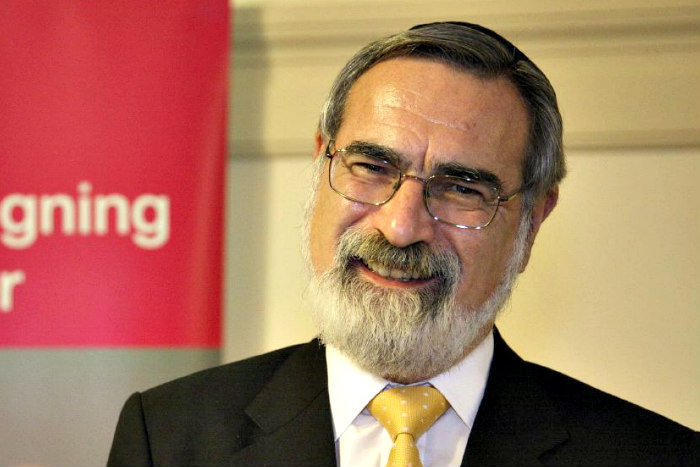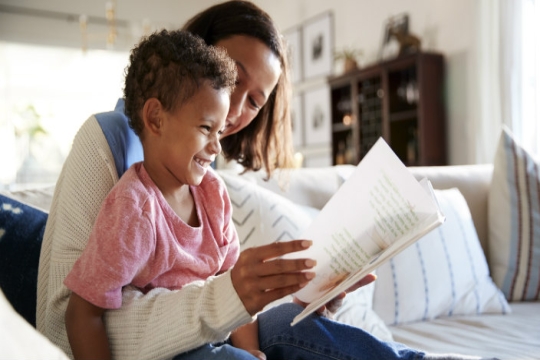
Rabbi Jonathan Sacks, z”l, served as chief rabbi of the United Hebrew Congregations of the Commonwealth for 22 years. Following his retirement in 2013, he held appointments at New York University, Yeshiva University, and King’s College London. His many books include The Dignity of Difference and Morality: Restoring the Common Good in Divided Times.
Rabbi Sacks died on November 7, 2020 at the age of 72, after a short battle with cancer. This interview with him first aired on the podcast OnBeing in 2010 and was rebroadcast on November 15, 2020. A video version is available, as well.
Krista Tippett: What lessons can we take from your book, The Dignity of Difference, in addressing this global moment?
Rabbi Jonathan Sacks: One of the things we most fear is the stranger. At most times in human history, we have lived among people who are much the same as ourselves. Today, in Europe and perhaps in America, if you walk down the average Main Street, you will encounter more anthropological diversity than an 18th-century traveler would have encountered in a lifetime.
In the Bible, the command reiterated more than any other – 36 times – is to love the stranger, for you were once strangers in the land of Egypt. This sense that we are enlarged, not threatened, by people who are different from us needs cultivating so that we might see the 21st century as a time full of blessing, not full of fear.
How is it possible to retain the essence or the truth claims of our own religion and also be enlarged by the religions of others?
I use metaphors. Think of biodiversity: The decoding of the human and other genomes shows that the three million species of animal and plant life all come from a single source. Everything that lives has its genetic code written in the same alphabet. Unity creates diversity. So, don’t think of one God, one truth, one way, one language to speak to God.
At the burning bush, Moses says to God, “Who are you?” and God says, “Hayah asher hayah.” Those words are mistranslated in English as “I am that which I am.” The Hebrew meaning is: “I will be who or how or where I will be” meaning don’t think you can predict me, I am going to surprise you – and one of the ways God surprises us is by letting a Jew or a Christian discover the trace of God’s presence in a Buddhist monk or in the Sikh tradition of hospitality or the graciousness of Hindu life. God is bigger than religion.
The most bitter of divisions are often within one’s own religion. How do you deal with that phenomenon?
On all matters that affect us as Jews, work together. On all matters that touch on religious differences that we cannot work our together, agree to differ with respect. So, we will work together across denominations on interfaith relations, fighting antisemitism, on Israel, Holocaust memorial, and so on. Working together in those areas allows us to build personal friendships.
You’ve said that the greatest single antidote to violence is conversation, speaking our fears, listening to the fears of others, and sharing our vulnerabilities. How do you know that to be true?
One of the most powerful groups for peace in the Middle East is the Bereaved Families Forum, made up of Israeli and Palestinian parents who’ve lost children in the conflict. While the grief of the other has to be heard, when we bring a sense of grievance, injustice, and victimhood, we are then held captive by the past. If we could get Israelis and Palestinians to think simply of what would be best for their grandchildren, we would move into a new frame of thinking.
One of the most powerful Jewish rituals is reading the Ten Plagues at the Passover seder. As each plague is called out, it is customary for us to spill a drop of wine, representing the shedding of a tear, to allow ourselves to think of victims of our victories, the pain of those on the other side. They enslaved us, but they were still human and they are suffering. It’s when you can feel your opponent’s pain that you begin on the path that leads to reconciliation.
Where are you finding hope?
We live in a glorious world, where we have mastered more mysteries of nature than we ever thought we would, but we have not yet conquered the mystery within ourselves. That is the challenge God is setting before us, and I am beginning to see religious leaders of different faiths coming together with an openness to one another that they never had before. So, I am full of hope.
This piece was adapted for ReformJudaism.org by Aron Hirt-Manheimer.
Related Posts

9 Jewish Activities to Try When You’re at Home with Kids

Judaism: The Faith of Feasting

